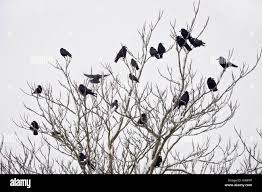
Embarrassment. Like death and taxes, it’s universal, only Ben Franklin overlooked it. Embarrassment is the title and subject of Thomas Newkirk’s latest book, and although the target audience is teachers of students whose learning is compromised due to the big “E,” it might as well be dedicated to all of us, especially writers and poets who put themselves out there each time they share or publish one of their works.
First, let’s look at the schools we all went through. Then, let’s draw parallels to writing. In school, there are many ways in which embarrassment yanks the reins on learning. As a reader, consider the moments you were forced to read aloud in class and tripped over or mispronounced words. Ouch. As a writer, consider the moments your paper was red-inked by the teacher or the moment your work ran the gauntlet called “public critique” in writer’s group. Ouch again.
Public speaking? I need not go into details. Being called on when you never raised your hand? Uh- and -oh. Listening but not getting it? Been there, done that (think math class). And, as Newkirk emphasizes with studies to back himself up, all of this embarrassment is magnified ten times by our stubborn conviction that everyone in the room is focused on our missteps, hesitations, incorrect answers, horrible writings, etc. Not true, of course, but the self is a mighty deceiver.
Writers and poets? They suffer embarrassment each time they share their work and the response is “I don’t get it” or “What is this about?” In fact, Newkirk champions the late Don Murray, a fellow University of New Hampshire professor, who often used the line “What is this about?” as a start when offering feedback. The follow-up from Murray, after listening to the writer’s embarrassed sputtering, was often, “If that is what it’s about, you don’t really get there until about page 5.” (Poets, you may substitute “stanza 5,” “line 15,” or whatever applies.)
So, yes, the very first step in finding your work a reader (for otherwise it is the falling tree that makes no sound) involves inevitable, if often well-intentioned, criticisms.
Surely getting a poem published in a journal changes everything, right? Wrong.
What if you read your own work in a journal and find it “looks different” or that it “doesn’t seem as impressive as it did on my computer monitor” — especially if you are reading it months after it was accepted (and you will be).
Time loves to embarrass you. No, I don’t mean things like wrinkles on your skin, a balding pate or white hairs, I mean your written work when it mischievously decides to look different from when you last set eyes on it.
What about when you get a book published? Are you immune? Safe at the plate? Not if you follow reviews. Surely there is someone who is bound to find your work so-so or even horrible, especially if they are comparing you to Keats and Coleridge and Frost (and some of them will).
What about when your book isn’t read (and the book you gave to Aunt Mae doesn’t count)? What if you ask yourself, “Why aren’t people reading my book? It took me months (or years) to write! It’s actually pretty damn good!” and the response is only people promising to read the book (so easy to do) but not actually following through (making them a breed apart).
It gets you thinking. And you KNOW what happens when you get to thinking! It’s Negative You that gets to do the thinking. Thoughts like: “Shoot. Maybe I’m kidding myself. Maybe this writing actually sucks after all.”
Next thing you know, like some blamed fool, you look at your sales numbers on Amazon dot all-is-never-calm. Lord. What could be more embarrassing than that? The wise athletes never listen to sports talk on the radio or read Twitter with their names hash tagged, so why would any writer make like a chump and look at his Amazon all-is-not-calm sales numbers as they make like inflation and head for the skies? Rhetorical question, I assure you.
Newkirk counsels self-generosity in his book. He argues that embarrassment is human nature and universal. And, most refreshingly, he uses himself as an example multiple times. He is shy. He doubts himself regularly. And yet, to the outsider or to someone watching him present at a conference, he comes across as a confident and successful professor / author.
In truth? Not quite. And for all of us who put ourselves out there with such little support and encouragement and even readers, it is a form of consolation. We’re not alone. We’re in this together. And, as we learned so well in schools (better, in fact, than what we were taught), embarrassment is life–as writers, life magnified multiple times.
So go ahead. Write, send it out, and doubt yourself. That’s the tour of duty you signed up for and part of the blushing game….








